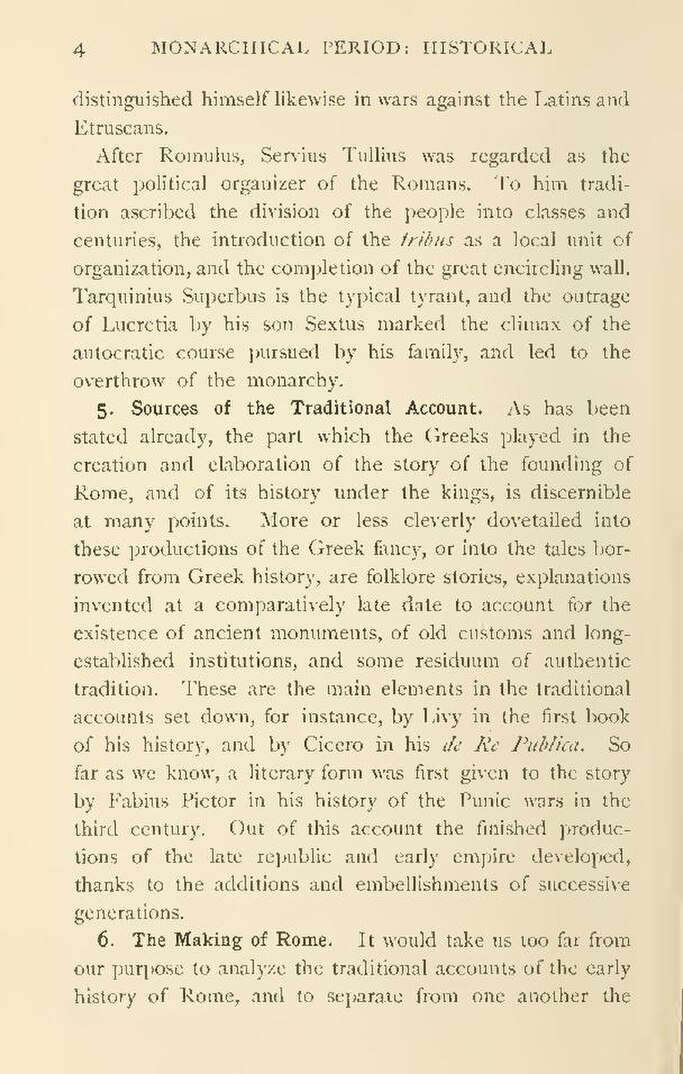distinguished himself likewise in wars against the Latins and Etruscans.
After Romulus, Servius Tullius was regarded as the great political organizer of the Romans. To him tradition ascribed the division of the people into classes and centuries, the introduction of the tribus as a local unit of organization, and the completion of the great encircling wall. Tarquinius Superbus is the typical tyrant, and the outrage of Lucretia by his son Sextus marked the climax of the autocratic course pursued by his family, and led to the overthrow of the monarchy.
5. Sources of the Traditional Account. As has been stated already, the part which the Greeks played in the creation and elaboration of the story of the founding of Rome, and of its history under the kings, is discernible at many points. More or less cleverly dovetailed into these productions of the Greek fancy, or into the tales borrowed from Greek history, are folklore stories, explanations invented at a comparatively late date to account for the existence of ancient monuments, of old customs and long-established institutions, and some residuum of authentic tradition. These are the main elements in the traditional accounts set down, for instance, by Livy in the first book of his history, and by Cicero in his de Re Publica. So far as we know, a literary form was first given to the story by Fabius Pictor in his history of the Punic wars in the third century. Out of this account the finished productions of the late republic and early empire developed, thanks to the additions and embellishments of successive generations.
6. The Making of Rome. It would take us too far from our purpose to analyze the traditional accounts of the early history of Rome, and to separate from one another the
